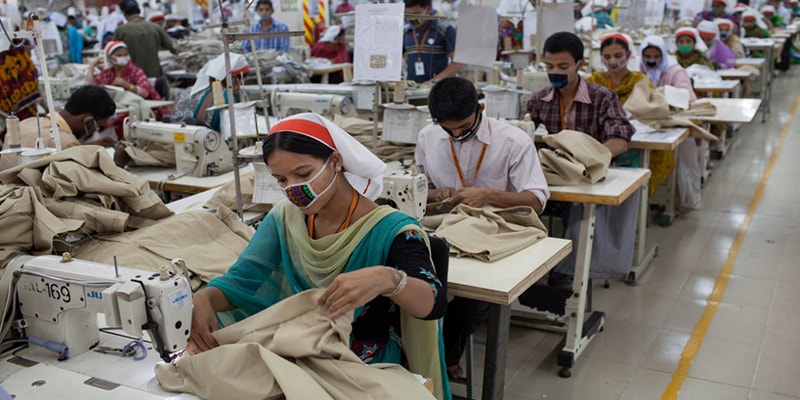
While some of the core labour standards of the International Labour Organization (ILO) are being followed by garment factories in Bangladesh, the non-core standards for minimum work-hours and safety at the workplace are not correctly practised, states the study conducted by German-based Friedrich-Ebert-Stiftung (FES) and Bangladesh Institute of Labour Studies (BILS).
The study was done between October 2016 and May 2017 by interviewing unionists and workers and the findings of the study were revealed at The Daily Star Centre, Dhaka recently. “The country’s image will be even brighter and more trade will come to Bangladesh if the labour standards can be implemented properly at the factory levels,” averred Jakir Hossain, Lead Researcher of the study and a Professor at Rajshahi University.
Also Read – Labour Unrest: Bangladesh garment industry faces the brunt
In addition to recommending an increase in the minimum wage of the labourers, the study also suggested that the nation needs to improve monitoring so as to create pressure on the employers to maintain minimum work-hours for the garment and leather workers. “Development of any industry depends on the warm relationship between the workers and the employers and this relationship will improve if the international labour standards are maintained,” remarked Wajedul Islam Khan, Joint General Secretary, BILS.
Khan also appealed the Government and the owners of the factories to allow the workers to form trade unions so that they can be united for their rights. Others who spoke on the occasion were Syed Sultan Uddin Ahmmed, Executive Director of BILS; Abdul Malek, General Secretary of Tannery Workers Union; Franziska Korn, resident representative of FES Bangladesh and Nazma Akhter, Executive Director of Awaj Foundation.






